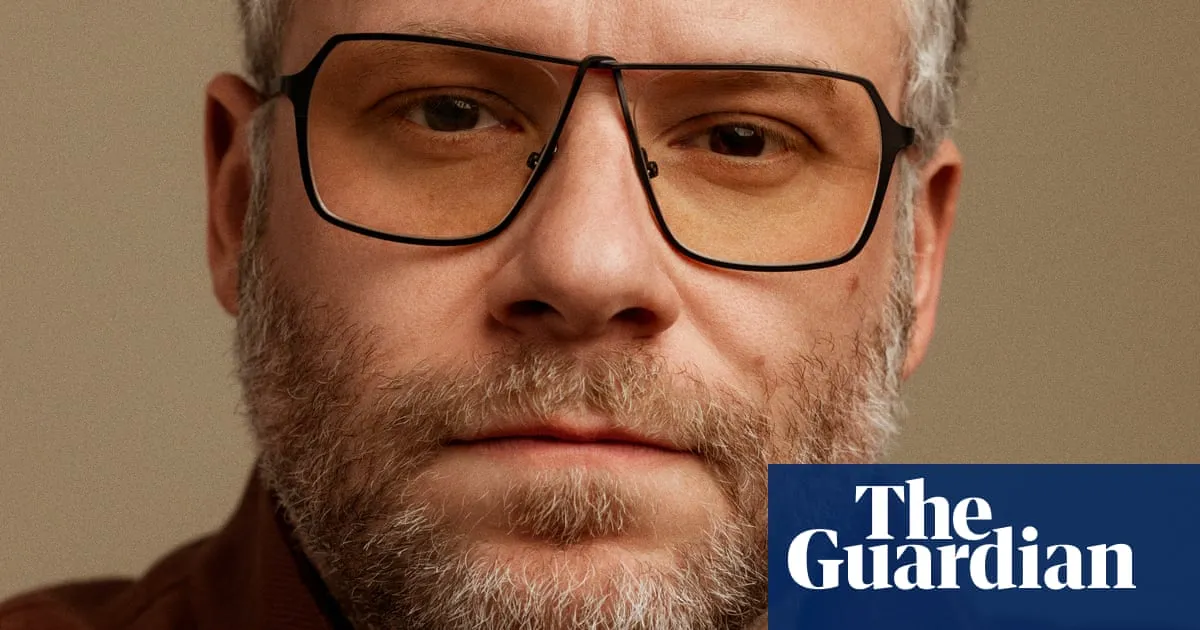
In a candid reflection, Seth Rogen shares his thoughts on the complexities of producing films and TV shows. He often finds himself questioning his contributions: “Are my notes helping?” he muses. “Am I making things worse? Am I actually inspiring the writers to create better content, or am I imposing my outdated vision?” These concerns are heightened when he collaborates with his heroes, such as in his recent project, The Studio, a new TV comedy where he serves as producer, director, co-writer, and star. The show features cameos from industry legends like Ron Howard and Martin Scorsese, prompting Rogen to ponder, “Do they like me?” This self-deprecating humor encapsulates the essence of Rogen’s personality—neurotic yet endearing, delivered in his trademark comedic style.
Following the devastating fires in Los Angeles earlier this year, Rogen notes an awkward new social protocol in Hollywood: before diving into casual conversation, individuals now check if their peers have lost everything. Thankfully, Rogen did not lose any possessions, chuckling as he describes his relief with his iconic wheezing laugh, reminiscent of a struggling vehicle. His charm and relatability, at 42, allow him to express his concerns more freely than most in the industry. Known for his quirky persona—funny, nerdy, and Canadian—Rogen's multifaceted career includes running a successful weed business and creating ceramics.
Speaking from the LA production office of Point Grey Pictures, the company he co-founded with Evan Goldberg, Rogen discusses their impressive portfolio of projects. While he humorously admits that not all listed projects on IMDb might be real, his recent output has been nothing short of remarkable. The TV comedy Platonic, which recently wrapped its second season for Apple, brilliantly captures the dynamics of middle-aged friendship. Additionally, the superhero comedies The Boys and Gen V have received acclaim for their humor and originality.
In The Studio, Rogen portrays Matt Remick, the newly appointed head of a fictional movie studio, Continental. This character embodies Rogen's signature traits: well-meaning but disorganized, brimming with grand ideas yet struggling with execution. The show's premise humorously tackles the decline of the film industry in favor of television, presenting a unique narrative where the only way to tell the story of saving film is through a TV series. Shot with a nostalgic, golden-hour filter that pays homage to Hollywood’s golden age, The Studio features an impressive lineup of cameos from Rogen’s extensive network.
Rogen acknowledges the risks of focusing on a studio head in a behind-the-scenes show, contrasting it with the approach taken in Extras. However, he believes audiences can relate to the struggles of a delusional boss trying to maintain integrity amid industry apathy. He draws parallels to The Office, where the boss is often the most tragic character, illustrating that power does not diminish relatability or humor.
Interestingly, Rogen has never held a conventional office job; he began his journey in show business at just 13. By 17, he was cast in Freaks and Geeks, and by 22, he was already writing for an Emmy-nominated comedy. His long-standing partnership with Goldberg, which began at a bar mitzvah class, has been pivotal in their success. Rogen often reflects on his Canadian roots, which contribute to his unique perspective in Hollywood.
Despite his financial success, Rogen doesn't feel burdened by wealth. He often helps others with his earnings, viewing his background of modest means as a motivator. This theme of goodness and societal value is explored in The Studio, particularly in an episode where Remick debates the worth of making movies versus curing child cancer with a pediatric oncologist played by Rebecca Hall.
In his personal life, Rogen has been in a committed relationship with his wife, Lauren Miller, for over 20 years. Their decision to remain child-free has sparked conversations, with Rogen noting the disproportionate scrutiny directed at women regarding their reproductive choices. He finds it curious that he faces fewer questions about not having children, suggesting that societal expectations often place unfair burdens on women.
Beyond film and television, Rogen has ventured into the world of pottery and cannabis. His company, Houseplant, launched in 2019, sells unique cannabis products and accessories, reflecting his passion for both cannabis culture and design. Rogen openly discusses the therapeutic benefits of cannabis, particularly for managing his mild Tourette syndrome and ADHD, emphasizing his unusual ability to remain productive while using it.
Looking ahead, Rogen is focused on maintaining a balanced lifestyle, dedicating time to personal projects and ensuring his production company runs smoothly. He humorously describes his work ethic and weekend relaxation routine, indicating that despite the pressures of Hollywood, he finds joy in his pursuits. As he continues to navigate the complexities of the entertainment industry, Rogen remains a relatable figure, blending humor, creativity, and introspection in both his work and personal life.